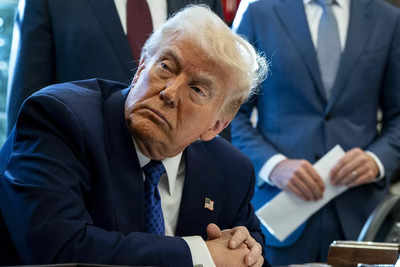The US Department of Education (DOE) has raised concerns about the growing number of colleges adopting test-optional admissions policies. More than 2,100 institutions have adopted such policies, with many doing so in response to disruptions caused by the Covid-19 pandemic. However, the DOE’s recent stance could lead to a significant shift, with the possibility of standardized testing being reintroduced as a requirement for admission.
In a recent letter issued to colleges, the DOE warned that schools might face consequences, including a potential loss of federal funding, if they continue to use race-conscious admission policies. The letter suggested that eliminating standardized testing, a practice often linked to increasing racial or socioeconomic diversity, could be viewed as unlawful under federal civil rights law. This latest development has stirred considerable debate about the future of college admissions in the United States.
DOE’s sweeping interpretation of federal law
As reported by Forbes, the DOE has indicated that its new interpretation of federal law could go beyond race-conscious admissions and apply to all aspects of campus life, including financial aid, housing, and discipline. Craig Trainor, acting assistant secretary for civil rights at the DOE, explained that if any institution uses race as a factor in decisions—directly or indirectly—it could be in violation of the law. The Department’s letter claims that race-neutral programs, such as test-optional policies, could be unlawful if they are used to achieve a desired racial balance.
Trainor wrote that the DOE would be scrutinizing schools that “eliminate standardized testing to achieve a desired racial balance or to increase racial diversity,” asserting that such practices could be seen as violating the civil rights of students, according to Forbes.
2,100 colleges at risk
According to FairTest, a leading opponent of standardized testing, over 2,100 colleges have adopted test-optional or test-free admissions for the 2025 academic year. The policy became widely popular after the Covid-19 pandemic made standardized testing difficult for many students. While some prestigious universities like Harvard and MIT have reintroduced testing requirements, many other institutions, such as the University of California and Penn State, have chosen to keep their test-optional policies.
Forbes notes that the DOE’s stance is likely to spark legal challenges from schools that argue their decisions are based on the belief that standardized tests are not always accurate predictors of academic success.
Legal battles on the horizon?
The DOE’s letter is likely to ignite a legal battle, with colleges and universities possibly seeking judicial review of the guidance. Experts are divided on the implications of the letter, with some arguing that the DOE’s interpretation is overly broad. Art Coleman, a partner at EducationCounsel LLC, told Forbes that while the DOE’s premise that race-conscious admissions policies may extend beyond admissions is valid, “it doesn’t mean that the decision extends in all settings or that the extension is a simplistic cookie cutter.”
For now, the future of standardized testing in college admissions remains uncertain, with the DOE’s push challenging the very policies that have reshaped higher education in recent years. As this issue unfolds, colleges and students may face a turbulent road ahead.


